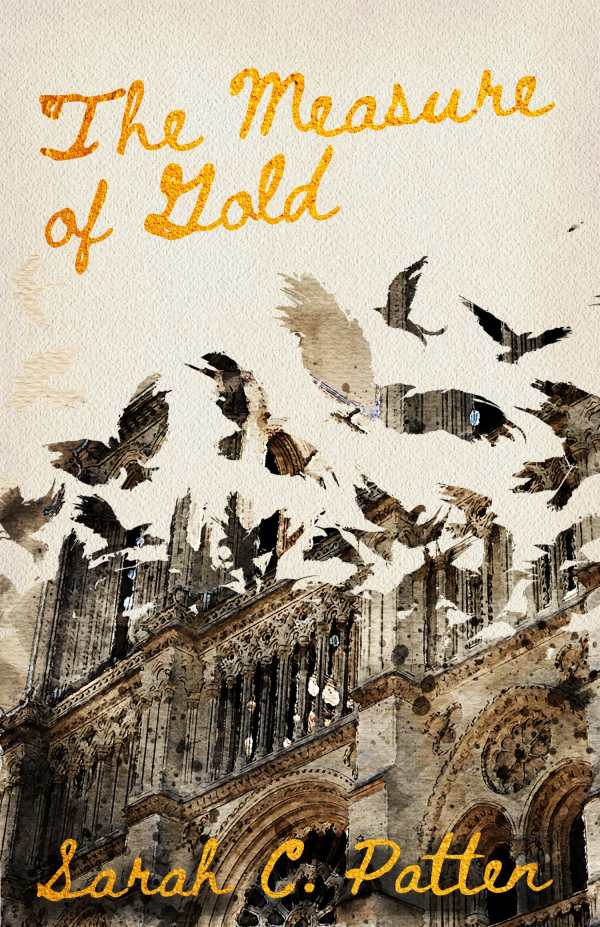
The Measure of Gold
The Measure of Gold is a touching World War II novel that features both fantasies and cruel sacrifices.
In Sarah C. Patten’s absorbing, bittersweet historical romance novel The Measure of Gold, saboteurs in World War II Paris work with alchemy, art, and mathematics.
In Tennessee, Penelope mourns her alchemist father’s death. When her Romani friend, Naomie, urges her to travel to Paris to study under her brother, Fulcanelli, Penelope joins him and the radical Royal Society scientists, who aid the French Resistance. But then Naomie goes missing, and Lucien, a fellow alchemist, is struck by Penelope, whose loneliness makes her his kindred.
Intricate, metaphorical descriptions of mathematics, alchemy, and Newton’s ideas thread with reflections on love, resulting in an impassioned, intellectual backdrop for the characters, who are at first fueled by their optimism. The demands of the war and his past experiences make Lucien reluctant to risk being vulnerable; still, his cautious speeches bristle with tender undercurrents. The flight of Lucien’s magpie is a delicate narrative addition, mirroring the lovers’ story, while a French mansion that’s filled with art frames scenes between them, depicting both the desolate abandonments that happen during war and hope in beauty.
Poetic elements—a magnifying glass designed to help write on grains of rice; origami planes made from propaganda; a time machine—make the story’s environment fantastical, as do its healing waterfalls and hidden meanings within the city’s parks and architecture. But Penelope stops being interested in these mysteries once she’s confronted with the Nazis’ violence, and she joins the British Special Operations Executive.
Throughout, Penelope’s memories about her girlhood in Tennessee with Naomie convey the dangers and daring escape they experienced together, which make their friendship all the more intense; it is the foundation for later developments. The novel’s second portion finds Penelope training as an operative, after which she’s installed in a Paris brothel as a spy.
Years are covered in a short space, with focus placed on conveying Penelope’s skill at gaining people’s trust. Her undercover activities are glamorized and deviate from her earlier development. She becomes an idealized object whose cunning and beauty are unrealistic, and she runs the risk of coming to harm because of this.
Lucien’s reemergence after a lengthy absence in the text is an at first hopeful development, though connected satisfactions are undermined when he’s cast in the worn role of a jealous man. When his reserve about mixing love with the uncertainty of wartime peels further back, it comes at a searing cost. The Nazis’ awareness of the Royal Society sets off a dark sequence that magnifies Penelope’s raw determination, reigniting the book’s suspenseful fusion of alchemy and historical events.
The Measure of Gold is a touching World War II novel that features both fantasies and cruel sacrifices.
Reviewed by
Karen Rigby
Disclosure: This article is not an endorsement, but a review. The publisher of this book provided free copies of the book and paid a small fee to have their book reviewed by a professional reviewer. Foreword Reviews and Clarion Reviews make no guarantee that the publisher will receive a positive review. Foreword Magazine, Inc. is disclosing this in accordance with the Federal Trade Commission’s 16 CFR, Part 255.
